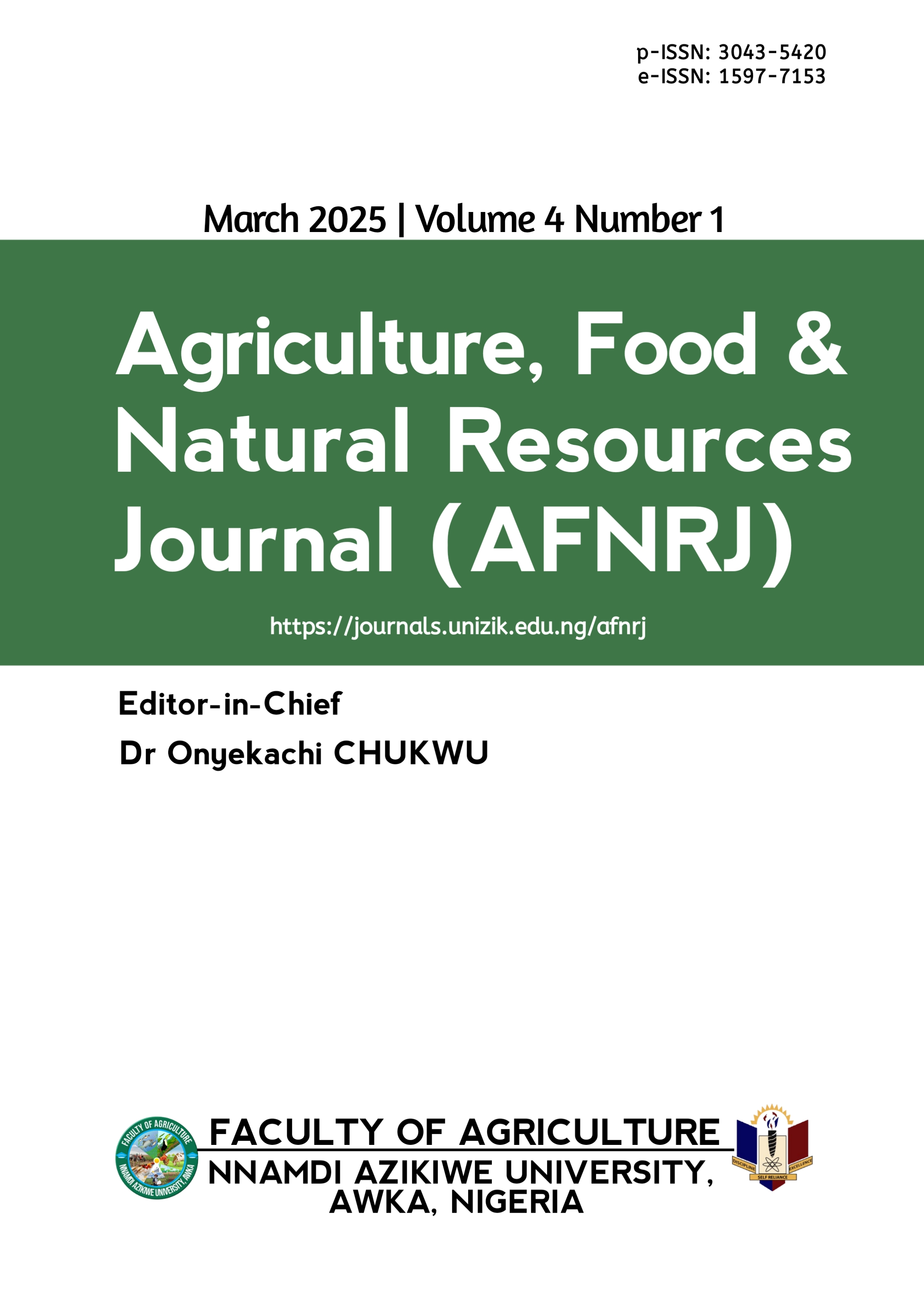Influence of residents’ social engagement on forest-based land use strategies for flood mitigation in southwest Nigeria
DOI:
https://doi.org/10.5281/zenodo.15028898Keywords:
Community programs, Forest-based methods, Flood-affected communities, InvolvementAbstract
Flood-prone communities in Southwest Nigeria experience immense hardships due to incessant flooding, disrupting social amenities and comfort. Therefore, this study aims to investigate influence of residents’ engagement on forest-based land use strategies (FLUS) for mitigation of flooding. Data were collected from a sample size of 250 respondents with a structured questionnaires through multistage sampling procedure and were analysed with frequencies, percentages, mean scores, Chi square statistic and Canonical Correlation Analysis (CCA) at α0.05. The findings showed that residents’ engagement in social activities based on associated welfare (mean = 5) ranked 1st, followed by residents’ social engagement due to benefits of meeting needs as well as coping with flood hazards (mean = 4.7) which ranked 2nd. Secondly, they employed the use of tree planting (TP) as the most popular FLUS for mitigating flooding (mean = 1.8) ranked 1st, followed by tree conservation (TC) and stream bank stabilization (SBS) (mean = 1.6) ranked 2nd. Chi-square statistic showed a significant relationship between residents’ social involvement and FLUS’ indicators such sustenance of natural environment (SNE), desilting (DS) and landscaping of the environment (LE). The CCA revealed a significant relationship and positive correlation between social connections enhancement of resilience to environmental and flood hazards and FLUS; both SNE β= 0.310, p = 0.00, R2 = 0.403) and LE (β= 0.310, p = 0.00, R2 = 0.355) at α0.005. In conclusion, findings revealed that social involvement of residents in flood-prone communities influenced level of utilization of FLUS for mitigation of flooding in Southwest Nigeria. The study recommends partnership for flood resilience through a collaborative framework for ecosystem organizations and residents of flood-prone communities.
Downloads
Published
Issue
Section
License

This work is licensed under a Creative Commons Attribution 4.0 International License.
which permits unrestricted use, distribution, and reproduction in any medium, provided the original author and source are credited.
Authors retain the copyright of their published work in the AFNRJ.





